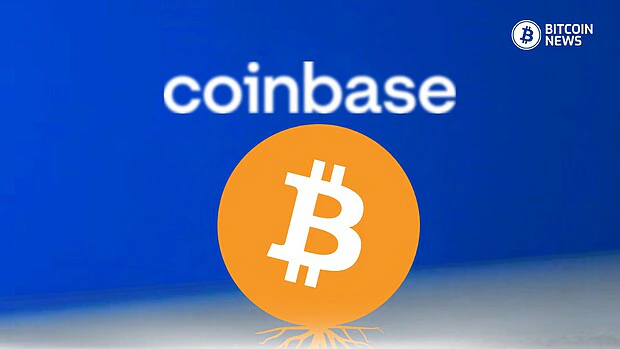In a major update for Bitcoin users, Coinbase has officially activated support for Taproot transactions, joining several other leading exchanges like Kraken and OKX.
This move, announced on October 8, allows Coinbase users to send bitcoin (BTC) to Taproot addresses, a feature that was previously unavailable on the platform.
Taproot is a significant upgrade to the Bitcoin network that went live in November 2021, aiming to improve privacy, scalability, and efficiency. It was one of the most anticipated upgrades to Bitcoin since the SegWit update in 2017.
The GitHub page states:
“[Taproot] seeks to minimize how much information about the spendability conditions of a transaction output is revealed on chain at creation or spending time and to add several upgrade mechanisms, while fixing a few minor but long-standing issues.”
Taproot introduces several new features, including Schnorr signatures, which allow complex transactions to be condensed into simpler, smaller data packages.
This reduces the size of transactions on the Bitcoin blockchain, which, in turn, lowers fees and improves scalability. The upgrade also enhances privacy by making multi-signature transactions appear like regular, single-signature ones on the public blockchain.
For Coinbase users, however, access to these benefits had been out of reach—until now.
Since the introduction of Taproot nearly three years ago, users of Coinbase had expressed frustration over the lack of support for Taproot transactions on the platform.
Many users faced difficulties when trying to send bitcoin to Taproot addresses. The absence of Taproot functionality meant that Coinbase users were missing out on the privacy, efficiency, and cost-saving benefits of the upgrade.
That all changed with the latest update. Coinbase announced on social media, “We’re pleased to announce that Coinbase․com users can now send Bitcoin to Taproot addresses, creating access to more onchain destinations.”
This announcement signals the resolution of past issues with failed transactions. According to Coinbase, users will now have a more seamless experience.
The adoption of Taproot by major exchanges like Coinbase is seen as a crucial step toward wider usage of the upgrade across the Bitcoin ecosystem.
While Taproot was activated with broad support from Bitcoin miners—90% of them voted for its approval—its actual usage has been slower to take off.
Taproot’s ability to support more advanced smart contracts has led to new innovations on the Bitcoin network.
For example, Bitcoin-native tokens such as BRC-20 have emerged, and Taproot has also played a key role in the development of Ordinals, a protocol that allows for unique data inscriptions on Bitcoin, similar to non-fungible tokens (NFTs) on other blockchains.
With Coinbase now supporting Taproot, there is hope that more users will begin to take advantage of these innovations.
Related: Coinbase Adopts Bitcoin Lightning with Lightspark Partnership
The exchange stated that this initiative will provide greater access to various on-chain platforms, which is in line with its ongoing efforts to improve the efficiency and scalability of Bitcoin.
In addition to enhancing privacy and scalability, Taproot has the potential to drive the growth of decentralized finance (DeFi) applications on Bitcoin.
One of the key goals of the upgrade was to make Bitcoin more compatible with advanced smart contracts, enabling decentralized applications to function more efficiently on the network.
Taproot also reduces the amount of information exposed on the public blockchain. Complex transactions, like those involving multiple parties or requiring multiple signatures, can now be bundled together in a way that makes them appear like simple transactions.
This improves privacy, making it harder for outside observers to trace and analyze transactions.
While Coinbase has now joined the ranks of exchanges that support Taproot, not all major platforms have done so.
OKX, Kraken, Bitfinex, and BitMEX have already enabled Taproot for Bitcoin transactions, but popular platforms like Binance, Crypto.com, and Gemini have yet to follow suit.
Taproot’s success depends on widespread adoption, not only by exchanges but also by wallet providers. The more services that support Taproot, the more users can benefit from its improved transaction efficiency and privacy features.
One of the key challenges facing Taproot adoption has been the slow integration of Bech32m addresses, the new address format introduced with Taproot. These addresses, which start with “bc1p,” are not yet supported by all wallets, which limits the ability of users to fully utilize Taproot.
The update also comes at a time when the competition between exchanges is heating up, with platforms looking to offer more features to attract and retain users.
As Coinbase continues to enhance its Bitcoin offerings, it may encourage other exchanges to follow suit and implement similar upgrades.










